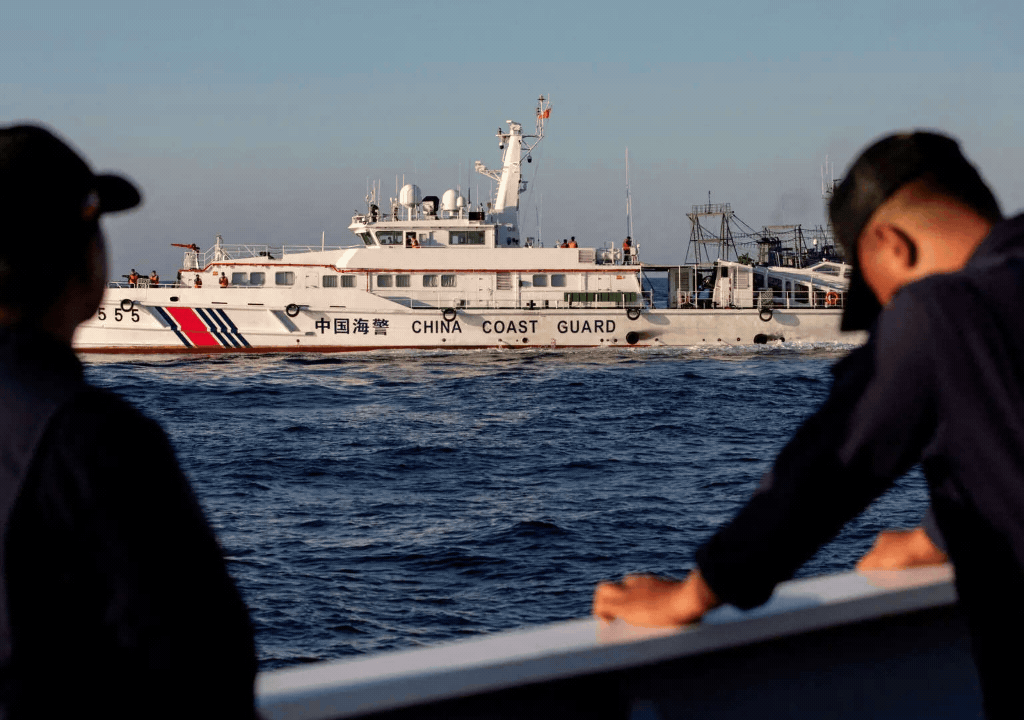After escalating tensions to a highly inflammable level in the waters, including humiliations, passing highly volatile laws, and fueling the conflict in every way, it now seems that China is downplaying the situation and seeking to de-escalate tensions with the Philippines. It appears that China now aims only to maintain its claim to the sea and realizes that further inflaming the region would be detrimental. Consequently, they are preparing to compromise with the Philippines, spreading hope for peace in the region.
According to reports, China and the Philippines have reached an understanding regarding resupply missions to a beached Filipino naval ship, a key flashpoint between the two countries in the South China Sea. In 1999, Manila intentionally beached the naval ship Sierra Madre on the disputed Second Thomas Shoal to assert its claims over the surrounding waters. Since then, a small group of sailors has remained on the vessel to support the Philippines interests, which has led to resupply missions that China has been accused of repeatedly attempting to obstruct. China asserts sovereignty over the South China Sea and is uninterested in the Philippines claims to the islands within it. China has accused the Philippines of using these supply missions to further its interests on the islands, while the Philippines has leveled similar accusations against China.
The Chinese foreign ministry confirmed a temporary arrangement between the two sides to jointly manage maritime differences and de-escalate the situation in the South China Sea. The ministry reiterated China’s demand that the Philippines tow away the ship and restore Second Thomas Shoal to its original state, as if it were unmanned and without facilities. The ministry also stated that China is willing to allow the Philippines to provide supplies to the ship’s occupants on humanitarian grounds before the beached warship is removed. However, they warned that if the Philippines attempts to transport large amounts of building materials to the ship and construct fixed facilities or permanent outposts, China will not accept it and will resolutely block such actions to protect its sovereignty. It seems like China is indicating that it does not want to fight but is ready to engage in dialogue.
The Philippines Department of Foreign Affairs (DFA) did not provide specifics about the provisional arrangement agreed upon Sunday for the resupply missions to the Sierra Madre. However, they noted that the arrangement followed frank and constructive discussions between the two sides earlier this month. The DFA emphasized that both parties continue to acknowledge the need to de-escalate the situation in the South China Sea and manage differences through dialogue and consultation, agreeing that the arrangement will not affect each other’s positions in the South China Sea. Philippine foreign ministry spokesperson Teresita Daza also stated that they will not retreat from their claims on the South China Sea islands and affirmed that Manila will continue to assert its rights and jurisdiction in its maritime zones, including Second Thomas Shoal.
The United States is bound to the Philippines by several defense agreements and pacts, including the well-known Mutual Defense Treaty of 1951. Additionally, the U.S. is working to increase cooperation with its allies in the East, such as Japan, Taiwan, and Australia, to build a military cooperation structure similar to NATO. This means that if tensions between China and the Philippines escalate further, it could develop into a regional conflict or even a third world war. However, the United States has no doubts about its commitment to the Philippines, and White House National Security Adviser Jake Sullivan stated that they will take all necessary measures to support the Philippines resupply mission to Second Thomas Shoal. Interestingly, Sullivan’s counterpart in the Philippines, Eduardo Año, sought to prevent further escalation of tensions by stating that they do not need direct American military engagement in the resupply mission at this point.
Both China and the Philippines have maintained firm positions on their territorial claims in the disputed waters. Tensions in the area have escalated into violence over the past year, including a recent incident where a Filipino soldier lost a finger in what Manila described as an intentional high-speed ramming by the Chinese Coast Guard. Numerous reports of similar incidents, mostly from the Chinese side, have involved attempts to humiliate opponents. Such provocations have raised fears of a conflict that could have global repercussions. However, recent developments and a mutual desire for dialogue offer the best solution for both China and the Philippines, as well as for the entire region.








